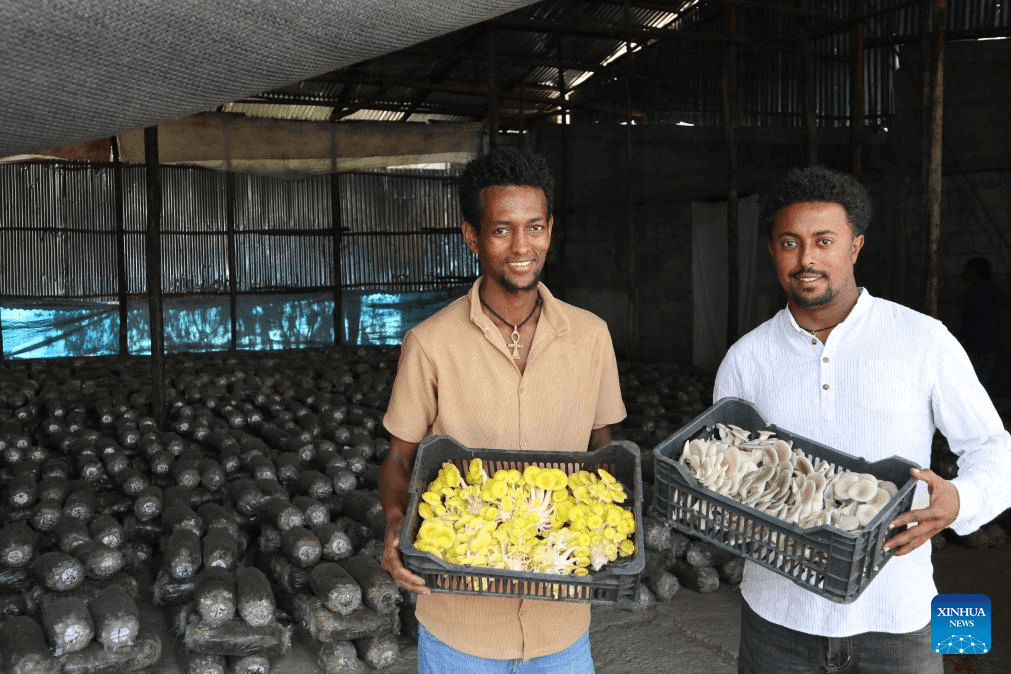In the cool, elevated outskirts of Addis Ababa, an unusual agricultural transformation is quietly taking root — led not by industry giants or foreign investors, but by a determined 29-year-old with a passion for mushrooms.
Mikias Tadesse, a former truck driver, never expected fungi to redefine his future. But a chance encounter with a mushroom dish prepared by Chinese road engineers in southern Ethiopia changed everything. Intrigued by its taste and texture — and recognizing its absence in Ethiopian cuisine — he saw an opportunity where few others had looked.
A Humble Beginning
Mikias knew mushrooms were nearly unknown in Ethiopia’s food culture. Yet he also saw their potential: quick to grow, space-efficient, and packed with nutrients. With support from Chinese agricultural experts, he began cultivating them using high-yield, disease-resistant spawns and simple tools provided during hands-on training.
His first harvests were modest, and local skepticism was strong. “Most people didn’t even consider mushrooms food,” he says. He personally approached supermarkets, restaurants, and hotels, offering samples and education.
Shifting the Market
Early results were discouraging. Some retailers agreed to stock his mushrooms, but sales were slow. Unsold produce was often returned within days. Still, Mikias persisted — and awareness began to grow. Health-conscious consumers, chefs looking for new ingredients, and younger customers seeking meat alternatives started buying in.
Today, he runs four cultivation sheds, each 250 square meters, producing around 50 kilograms of mushrooms daily, including yellow oyster, king trumpet, and classic oyster varieties. With a team of 12 workers, demand now regularly outpaces supply.
Foreign Expertise, Local Impact
Mikias credits his progress to the technical support he received from Chinese experts — particularly in controlling humidity, managing disease, and sourcing top-tier spawns. One specialist, Zheng Aibao, who has supported mushroom development in Ethiopia across multiple missions, notes that the cultivation methods introduced are now used in at least five local farms.
This blend of foreign technical guidance and local entrepreneurship is proving to be a powerful model — one that’s fostering innovation, employment, and food diversity.
Mikias now aims to expand further, with an eye toward processing and exporting mushrooms to regional markets. He envisions a future where mushrooms are no longer considered a novelty, but a common feature on dinner tables across Ethiopia.
“Our diets can’t depend on the same staples forever,” he says. “Mushrooms offer something new — nutritious, sustainable, and profitable.”



